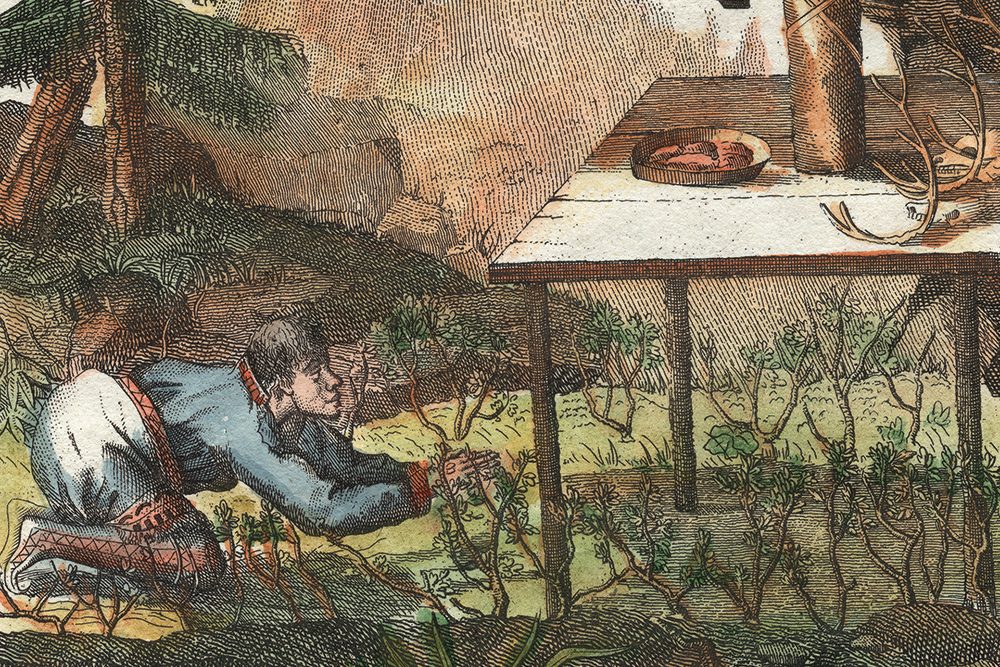The deeper you get into physics, the simpler it becomes. The starting point of this wonderful book about Stephen Hawking’s “biggest legacy” (which no one outside of physics has heard of) is the problem of our insignificance. Make a change in almost any of the slippery, basic physical properties of the universe and we’re toast — life would not be possible. If, for example, the universe had expanded even slightly more slowly than it did after the Big Bang it would have collapsed in on itself. Result? No us. A fraction faster and no galaxies would form, let alone habitable planets. In the incandescent beginning of the universe, each of these basic physical properties was as vacillating as a dream: they could have ended up being pretty much anything. How did they all, so sweetly, settle on the minuscule range of values that brought about us?
One answer is to say God did it. He deliberately selected our universe (and not one of the overwhelmingly more probable alternatives) to go forth and be fecund. Another suggestion is that all the possible universes that could exist do exist, now, at the same time — trillions and trillions of them, humming about like bees — and we’re just in one of the ones we could be in. This idea is called the multiverse. In a multiverse there’s nothing special about the incredible unlikeliness of being. Leibnitz came up with the proposal first, adding piously that God has placed us in the best universe of all possible universes. People have been making fun of that since Voltaire. Another idea is that new “worlds” are being created endlessly, all equally real. Every time you make a cup of coffee, a multiplicity of alternative worlds splits off in which you made it with more milk, or added honey instead of sugar, or the coffee machine exploded and you didn’t make it at all. These other worlds are truly out there, unreachable and coffee-less. The suggestion sounds inane, but to some physicists the near impossibility of human existence is worse.
There’s a nice sense of graspability about all this once you get over the fantasticalness. A fourth possibility could be… um… let’s see… to say time is infinite and universes boing in and out of existence, one after the other, most of them as dead as Marley, but just now it’s the turn of one that allows us to exist? Apparently, this idea is no good; but it’s comforting to know you’re probing quantum cosmology when you think about it. I’ve got a friend who works for a professor in Cambridge who believes in bouncing universes. She says it’s wonderful: he comes in and throws balls against the stationery cupboard door.
Thomas Hertog’s book is part memoir of the time he spent working with Hawking during the fevered last two decades of the great man’s life; part, an attempt to convey the hallucinogenic exuberance of theoretical physics research, and mainly a defense of the radical new theory he and Hawking developed to escape the problems of our improbability.
Unexpectedly, God is mentioned über alles. He looms over the shoreline of science: cavalier, provoking flamboyant statements, a mark of the end of critical thought; not easy to dismiss. A few excellent physicists believe in Him; many have done their most — their best and worst — by trying to exclude Him. One of the most brilliant figures in On the Origin of Time, the cosmologist Georges Lemaître, was a Catholic priest. He proved Einstein wrong about the state of the universe. Einstein was adamant that the universe could not be expanding. Why not? Because that would suggest a first moment, a point of origin, and before you knew it God would sneak in. Father Lemaître disagreed. He said God had nothing to do with it. He said the universe was an expanding pudding.
Your hackles might rise at what these profs try to put over. They are half in the nineteenth century, half in the twenty-ninth; half Victorian parson, half hooligan hologram from the end of time. What fun they are having.
“Time to stop playing God,” said Hawking, when he and Hertog began work on their new idea about the origin of our universe — their so-called “top down” theory that’s designed to kick the multiverse in the pants. In Chapter 6, Hertog includes a wonderful drawing that encapsulates the idea. It would look perfect on a Glastonbury festival T-shirt: a capital U, representing the universe, with a human eye on the left prong looking across at the right prong, which represents the start of the universe. That eye is an observer. It is looking back to the Big Bang, forcing the universe, by observation alone, to become the universe we now find ourselves in.
Eh? I wrote to the publisher to get Hertog’s contact details, then rang up the man himself to protest. He turns out to be a professor at the same university where the great Lemaître once talked about the universe as a type of expanding spotted dick. “You’re claiming that we made the universe what it is by observing it?”
There was a long pause.
“That is almost right,” he agreed at last. He is amiable and very polite.
The essential fact I had overlooked is the one that confuses every non-physicist I have ever spoken to about the subject, and which popular science writers frequently forget to mention. An observer doesn’t have to be a human observer. A rabbit can be an observer; a lump of quartz will do nicely; a speck of subatomic primordial gloop-dust is equally good. An observer is anything that interacts with its environment and so forces reality into existence. It’s what that exhausted old chestnut Schrödinger’s Cat is about. (“Every time I hear the words ‘Schrödinger’s Cat’ I reach for my gun,” said Hawking.) The laws of physics don’t exist independent of the universe; they were fixed, a billionth of a second in, by the “observations” of gloop.
One of my favorite bits of On the Origin of Time concerns a game invented by the great John Wheeler. He was shy, conventional, soft-spoken and looked like Richard Nixon’s honest brother. But even the famously eccentric Richard Feynman thought “this guy sounds crazy. He has always sounded crazy.”
Crazy Wheeler’s game is the same as Twenty Questions, with a twist. In Wheeler’s version, one person asks everyone else in the room yes/no questions to try to work out the word that they’ve all secretly agreed on — only they have not agreed on a word. They answer “yes” or “no” as they please, at random if they like. The only condition is that each answer must be compatible with all the previous ones. The game will produce a word, but it will be forced into existence by whimsy. This is the nearest you can come to knowing what it feels like to be inside quantum theory. The questions are experiments; the yes/no answers observations; the narrowing down on the unknown word, the collapse of the fantastical “I’m a bit of everything” quantum wave into the cold fact of reality. Wheeler’s twist takes the game out of the Victorian parlor and plunges it back 90 billion years, into the inferno of post-Big Bang inflation, when the quantum state wave function of the universe first froze into the laws of physics.
I tried Wheeler’s game with my family and it was a disaster. It’s impossible to keep obedience in your modern domestic wave function. Long before the word had been forced out, my aunt had decided that the answer must be “Venus fly trap” and started answering to make it come out as that; my second cousin insisted that playing “I went to market” would do just as well, and my chum yawned in my face — openly. Without covering her mouth!
I emailed Hertog, to complain a second time. Your aunt has great insight, he replied. Her misbehavior turns out to be the analog of one of Hawking and Hertog’s most remarkable proposals, that observations acted on the early quantum universe in a Darwinian fashion. That’s why the book’s title hints at On the Origin of Species. Deciding on a word before the game is finished freezes a skewedness into the final result. It’s the equivalent of the evolutionary pressure that results in, say, our lovely law of gravitation popping out of the early chaos (as opposed to a nasty variant that forces people to shoot upwards, perhaps) or preserves the mutation that injected an extra millimeter into the beak of a Galapagos Island finch.
One of the many joys of On the Origin of Time is that, for a moment, you believe you understand what all this means. Chapter 6 is the critical one. After you’ve read it, and calmed down from the family cacophony of playing Wheeler’s game, go to a quiet room with the book and try the game again, using a coin. It’s the same basic idea, but a lot less stressful. Heads means “no”; tails, “yes.” You’ll soon have insights into something that is perhaps quantum cosmology. They’re vague, just an amateur glimmering, but they are something, and (as my aunt has proved) they could be profound. The origin of the universe, a feeling of cleverness, a possible fresh answer to the ancient metaphysical problem of our insignificance, and a new game — not bad for $29.
This article was originally published in The Spectator’s UK magazine. Subscribe to the World edition here.

























